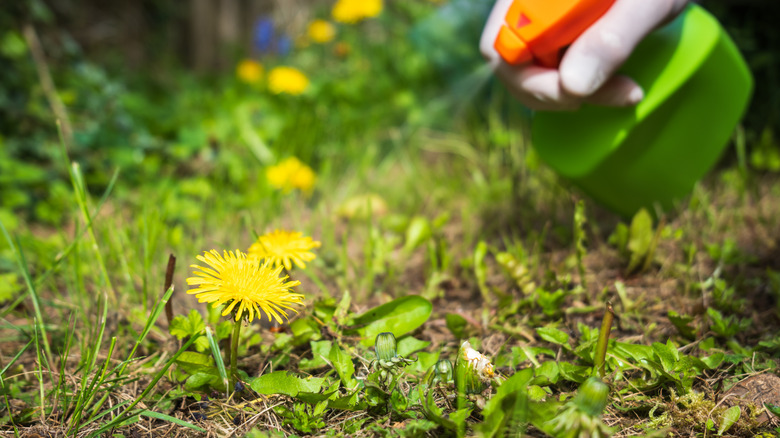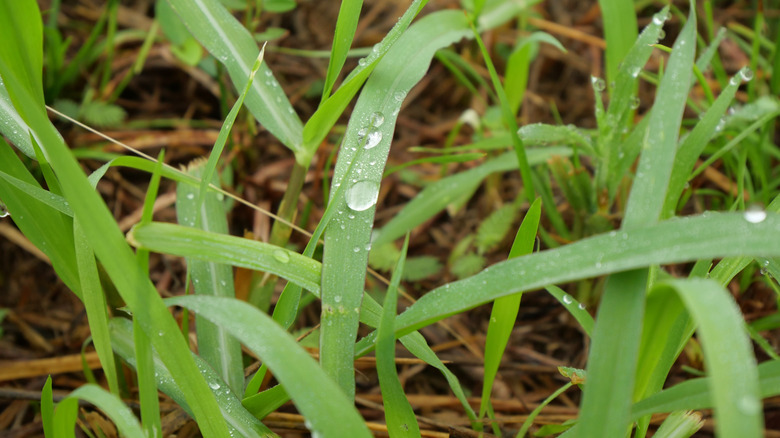When Is The Best Time To Spray Your Weeds?
Weed management involves continuous inspection and work to make sure that no new weeds pop up around your yard and garden beds. In some cases, weeds can be pulled by hand before they become a problem. As a last resort, you might need to use other strategies for removing weeds like commercial herbicide sprays, especially if you're faced with widespread weed issues. Before you start spraying weeds, though, it's important to make sure it's the ideal time for it. Spring, summer, or early fall, when weeds are in their active growth stage, are the best times of year, and it's generally ideal to spray in the late morning or the early evening to help ensure better product absorption.
It's also important to wait for a dry day, with no recent or upcoming precipitation. This is because the best type of weed killer for already-growing weeds is a post-emergent herbicide, and as a rule of thumb, these types of herbicides work best on dry ground and foliage. Water from dew or rainfall will prevent the herbicide from fully sticking to the weeds. It can also dilute the herbicide or wash it away, rendering it less effective. Even extra-high humidity can block your weed killer from working as intended.
Late morning after the dew has dried is a safe bet, timing-wise. Post-emergent weed killers also work best in air temperatures that range from 65 to 85 degrees Fahrenheit, which is why both morning and evening are better times than the hot afternoon. Higher heat can cause the active ingredients in the herbicide to evaporate.
Why you should never spray weeds when they're wet
To ensure that the product sticks to the weeds and works to its full potential, you should check your weather forecast before applying post-emergent herbicides. You certainly don't want to waste product, nor do you want these types of chemicals to wash off into other areas of your yard or garden. Many herbicides will kill any plant they come into contact with, not just weeds, while others can cause plant damage. They can also contaminate groundwater and surface water.
Your herbicide may list the exact amount of time that must pass after application before rainfall to allow the product to fully absorb into the plant, also known as a "rainfast period." This period can range from 30 minutes to several hours, depending on the active ingredient. If you're not sure, try to err on the side of caution and apply weed killer at least 24 hours before any rain is expected. Additionally, wait a full day after it's rained before spraying weeds.
Also, prior to using any herbicide, make sure to read the product label carefully to ensure you're following all directions and precautions. Double-check to make sure the herbicide is intended for the specific weeds you're trying to kill, and that it's a post-emergent formula. Pre-emergent weed prevention doesn't kill existing weeds and is intended for use on the ground before weeds sprout.

